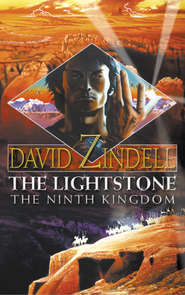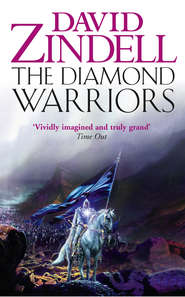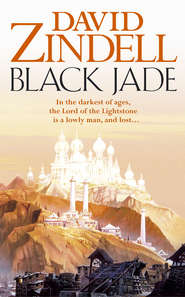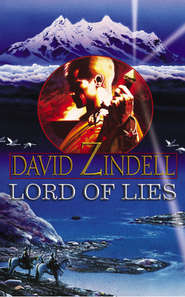По всем вопросам обращайтесь на: info@litportal.ru
(©) 2003-2024.
✖
The Idiot Gods
Настройки чтения
Размер шрифта
Высота строк
Поля
When my mind ached with too much knowledge and I grew tired, my mother sang me to sleep with lullabies. When I awakened from dark dreams with a rumbling dread that I would be unable to face life’s difficulties, my mother told me the one thing that every whale must know, something more important than even the Song of Life and the ocean itself: that I had been conceived in love and my mother’s love would always fill my heart – and that no matter how far I swam or how much life hurt me, I would never be alone.
On the day of my birth, my mother instructed me not to breathe until Chara and Mira swam under me and buoyed me up to the surface. I came quickly, tail first, propelled out of my mother’s warm body through a cloud of blood and fear. The shock of the icy water pierced straight through me with a thrilling pain. I nearly gasped in anguish, and so I nearly breathed water and drowned. Mira and Chara, though, as promised pressed their heads beneath my belly and pushed me upward. Light blinded me: not the scintillation of roaring winds but rather the incandescence of the sun impossible to behold. It burned my eyes even as it warmed me in tingles that danced along my skin. The water broke and gave way to the thinness of the atmosphere. In astonishment, I drew my first breath. With my lungs thus filled with air, through my tender, untried flute, I spoke my first baby words in a torrent of squeaks and chirps that I could not contain. What did I say? What should a newborn whale say to the being who had carried and nourished him for so long? Thank you, Mother, for my life and for your love – it is good to be alive.
And so I tasted the sea and drank in the wonder of the world. Everything seemed fascinating and beautiful: the blueness of the sea ice and the shining red bellies of the char that my family hunted; the jewel-like diatoms and the starfish and the joyous songs of the humpbacks that sounded from out of deeps. All was new to me, and all was a marvel and a delight. I wanted to go on swimming through this paradise forever.
How deliciously the days passed as the ocean turned beneath the sun and through the seasons! With my mother ever near, I fattened first on her milk and then on the fish that she taught me to catch for myself. My mind grew nearly as quickly as my body. So much I needed to learn! The sea’s currents had to be studied and the migrations of the salmon memorized. My uncle Alnitak, greatest of our clan’s astronomers, taught me celestial navigation. From Mira I gained the first glimmerings of musical theory and practice, while my older sister Turais shared with me her love of poetics. My mother impressed upon me the vital necessity of the Golden Rule, less through words and songs than through her compassion and her generosity of spirit. As well, she guided me through the maelstrom of the many Egregious Fallacies of Thought and the related Fundamental Philosophical Errors. It took entire years and many pains for her to nurture within me a zest for the arts of being: plexure, zanshin, and shih. Once or twice, in the most tentative and fleeting of ways, I managed to speak of the nature of art itself with the Old Ones.
It was my grandmother, however, who held the greatest responsibility for teaching me about the Song of Life. I must, she told me, quenge deep within myself, down through the dazzling darkness into spaces that can contain the entire universe as a blue whale’s mouth contains a drop of water. As I grew stronger and swifter, I must make of myself a song of glory that found resonance with the song of the sea – and thus become a part of it. At least for a few magical moments, I must quenge with the gods. Was this not the calling of any adult orca? And so I must learn to sing with as great a prowess as I applied to swimming and hunting; only then would my grandmother and my other elders deem me to be a full adult. And only then would I be allowed to mate and make children of my own.
Of what, though, was I to sing? Over many turnings of light and dark, sunshine and snow, I considered the necessities of this composition. My rhapsody, as we call the songs of ourselves, must attain to the uniqueness and perfection of a single snowflake while simultaneously ringing with all the memories of the ocean out of which the snowflake had formed. It must tell of the past of the whole world and of the destiny of the teller.
What, I wondered, would be my destiny? In what way was I unique? Although I could not say, I gained a whisper of an answer to these questions from a prophecy that my grandmother made at my birth: that either I would die young or I would add something new to the Song, something marvelous and strange that had never been heard in all the long ages of our people.
From out of the humans’ oldest poem, these words echo through humanity’s much shorter ages – words that curiously accord with my grandmother’s instructions to me:
You are what your deep, driving desire is
As your desire is, so is your will;
As your will is, so is your deed;
As your deed is, so is your destiny.
Such deeds I wanted to do! – but what deeds? I did not know. Impossible notions came to me. I would journey to the yearly gatherings of the sperm whales, and I would coax these deep gods to reveal all their wisdom. I would crack apart icebergs with a shout from my lungs; I would put the Aurora’s fire into the mouths of the great, mute sharks, and I would teach the starfish to sing.
First, however, I had to apprehend my deepest desire. For many years, I applied myself to this task. I meditated, and I sang, and I grew ever vaster and more powerful, fed in my body by the sea’s fishes and in my soul through my family’s heartenings. I attained my full form, larger even than that of mighty Alnitak. My blood thundered with wild lightnings, and my testes burned with seed, and I dreamed of finding a lovely, young she-orca with whom to mate.
In this season of my discontent, in a time of hunger when the fish were few, there occurred three portents that changed my life. The first of these the humans would regard as a cliché – as wearisome as the slaughters that make up most of their histories. To me, however, the news that my cousin Haedi brought from out of vernal mists one day shocked me with its signal import. She swam up to my grandmother and told of a white bear standing on an ice floe far from the pack ice from which this tiny, floating island had splintered. Our whole family moved off south in order to witness this unheard-of misfortune. Turais’s newborn, little Porrima, remarked that she had never seen a bear.
Long before our eyes could make out this king of land animals, we sighted him with our sonar. How hopeless the situation of this great beast seemed! He made a pitiful figure, a smear of fur atop a bit of ice, forlorn and alone against the churning, gray swells of the sea.
My uncle Alnitak, long and powerful, always so precise with distances, seemed to point his notched dorsal fin at the bear as he said, ‘He could swim back to the ice if he dared – if he had the strength, it is barely possible that he might make it.’
We swam a little closer, our sides nearly touching each other’s, at one in our breath and in our thoughts. Then we dove in a coordinated flow of black and white beneath the surface, closer to the bear and his icy island. My mother zanged the bear with her sonar. This sense did not work very well on objects outside the water, but the clicks my mother made were powerful enough to pierce the bear’s fur, skin, and muscles and to reflect back through the water as images that we all shared.
‘Very well, then,’ my aunt Mira said, in her sad, plaintive voice. ‘The bear has starved and is much too weak to swim so many miles back to the ice.’
What else was there to say? Either the bear would die from the belly-gnawing ache of hunger or he would venture into the water and drown – or find his end in the feeding frenzy of a shark or between the jaws of one of the Others. At this, my grandmother turned back towards our usual fishing lanes. As she often said, each of us has a single destiny.
That might have been the end of the matter had I not chanced to recall a story told to me by Dheneb, who had once spoken with one of the Others. Apparently, when stalking seals, the ice bears were clever enough to cover their black noses with their white paws so that the seals did not detect them creeping forward across the snow fields. Why, I wondered, must such a cunning creature perish so ignominiously just because the ice had mysteriously melted around him?
I determined that he should not die this way. An impulse sounded from within me and swelled like a bubble rising up through the water. I said, ‘Why don’t we push the bear’s island back to the pack ice?’
For a few moments no one spoke. Then Chara flicked her powerful flukes and said to me, ‘What a strange idea! You have always had such strange schemes and dreams!’
‘Thank you,’ I replied. ‘You are complimenting me aren’t you?’
‘Can you not hear in my voice the overtones of my appreciation for your innovatedness of thought?’
‘Sometimes I can, Aunt.’
‘If you listened hard enough at the interstices of my words, you would never doubt how much I value the freshness of your spirit.’
‘Thank you,’ I said again.
‘I value it, as we all do, almost as much as I cherish your compassion – compassion for a bear!’
I zanged the bear with my sonar, and I heard the quickened heart beats that betrayed his fear. Did he sense my family’s holding a conference beneath the waters near his island? What, I wondered, could the bear be thinking?
‘How often,’ I said to Chara, ‘has Grandmother averred that we must have compassion for all things?’
‘And we do! We do!’ she called out. ‘We sing to the diatoms and have family-feeling for the broken shells of the mollusks – even for the bubbles of oxygen in the water that long in their innermost part to be incorporated once again into an inspired young whale such as you who exalts the beauty of compassion.’
Alnitak, less loquacious than Chara, beat his flukes through the sun-dappled water and said simply, ‘I would relish the novelty and satisfaction of saving this bear, but it is too far for us to swim right now. Are we not, ourselves, weak with hunger?’
This was true. Days and days had it been since any of us had eaten! Where had the fish gone? No one could say. We all knew, however, that huge, lovely Grandmother had grown much too thin and my sister Turais had nearly lost her milk and could barely feed the insatiable little Porrima. And Mira, my melancholy aunt, worried about her child Kajam. If our luck did not improve, very soon Kajam would begin to starve along with the rest of us and would likely come down with one of the fevers that had carried off Mira’s first born to the other side of the sea. Her second born had died of a peculiar stomach obstruction, while her third had been born with a deformed tongue and jaw, which had made it impossible for the child to eat. Poor Mira now invested her hope for the future in the young and frail Kajam.
‘All right,’ I finally said, out of frustration, ‘then I will push the bear myself to the pack ice. Perhaps I will encounter fish along the way and return to lead you to them.’
Alarmed at the earnestness in my voice, my mother Rana swam up to me. Her streamlined form, nearly perfect in proportion, flowed through the water along with her concerned words: ‘There is much bravura in what you propose, but also the folly of misplaced pride. This cannot be the great deed you wish to do.’
Chara’s second daughter Talitha, who was only three years old and didn’t know any better, gave voice to one of the usually unvoiced principles by which we live: ‘But you cannot leave your family, cousin Arjuna!’
She loved me a great deal, tiny Talitha did. No words could I find for her. I did not really want to leave her.
We concluded our conference with a decision that I should remain with everyone else. Again my grandmother turned to abandon the bear to the tender mercies of the sea.
‘Wait!’ I cried out. A wild, wild idea rose out of the unknown part of me with all the shock of a tidal wave. ‘Why don’t we eat the bear?’
For a whale, the sea can never be completely quiet, yet I swear that for a moment all sound died into a vast silence. I might as well have suggested eating Grandmother.
Talitha again spoke of the obvious, something my elders knew that I knew very well: ‘But we cannot eat a bear! That would break the First Covenant!’
She went on to recount one of the most important lessons that she had learned: how long ago the orcas had split into two kindreds, one which ate only fish while the other hunted seals and bears and almost any animal made of warm blood and red meat. These Others, who looked much the same as any orca of my clan, almost never mingled with us. We had promised to leave each other alone and never to interfere with the different ways by which we made our livings. Even so, we knew each other’s stories and songs. If we killed the bear, the sea itself would sing of our desperate act, and the Others would eventually learn of how we had broken our covenant with them.
My grandmother moved closer to me through the cold water. Her eyes, as blue and liquid as the ocean, caught me up in her fondness for me and swept me into deeper currents of cobalt, indigo, and ultramarine, and the secret blue-inside-blue that flows within the heart of all things. She asked, ‘Do you remember what I said about you on the day you were born?’
‘You said many things, Grandmother.’
‘Yes, I did and these words I would like you to remember: How noble you are, in both form and faculty, Arjuna, how like an angel in action, and in apprehension like a god! The beauty of the world you are and all of my delight.’
I did remember her saying that. She told all her grandchildren the same thing.
‘How noble would it be,’ she now asked me, ‘for us to break our promise to the Others?’
‘But we are so hungry! They would not mind if we took a single bear.’
‘The Covenant is the Covenant,’ she told me, ‘whether or not you think the Others would mind.’











